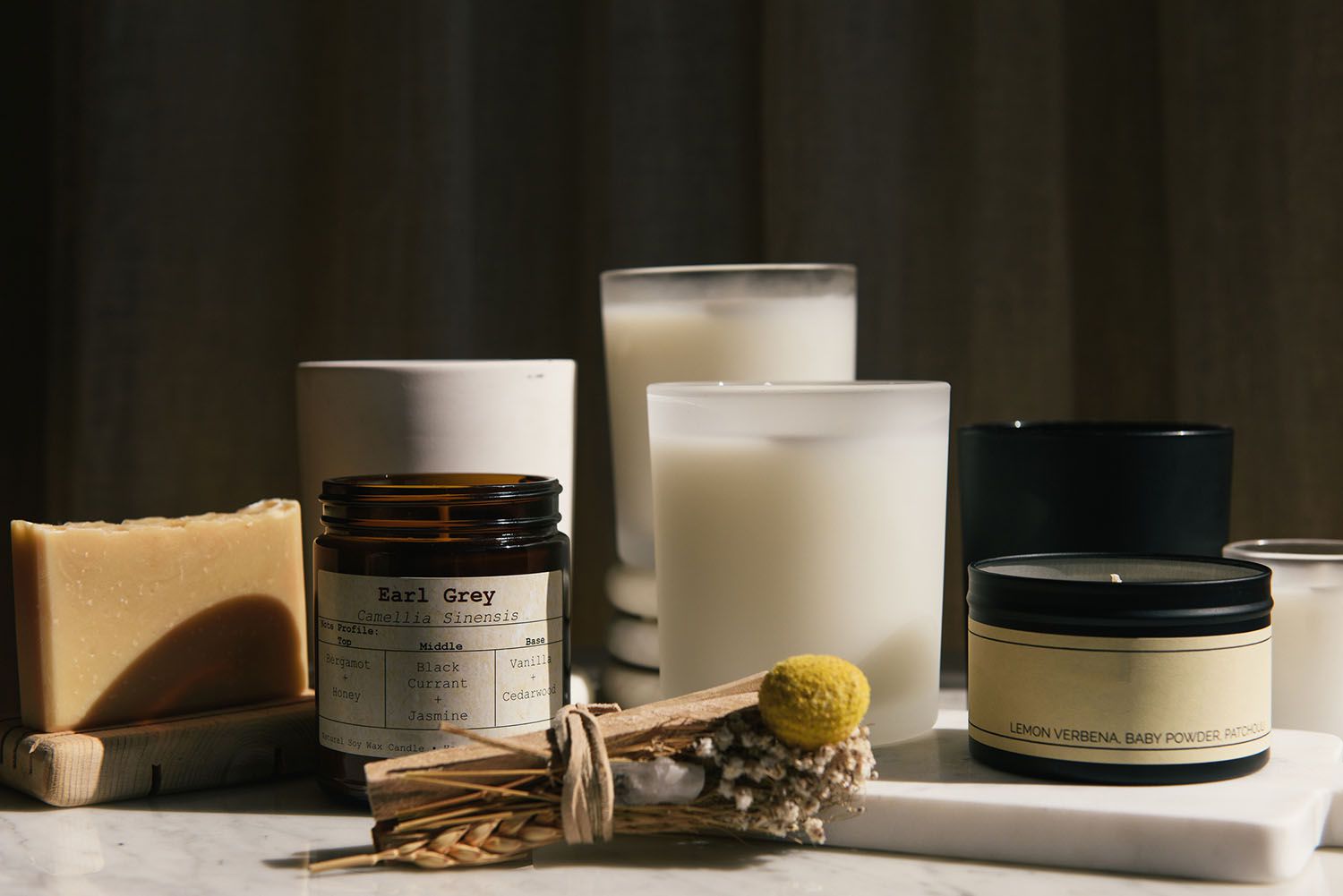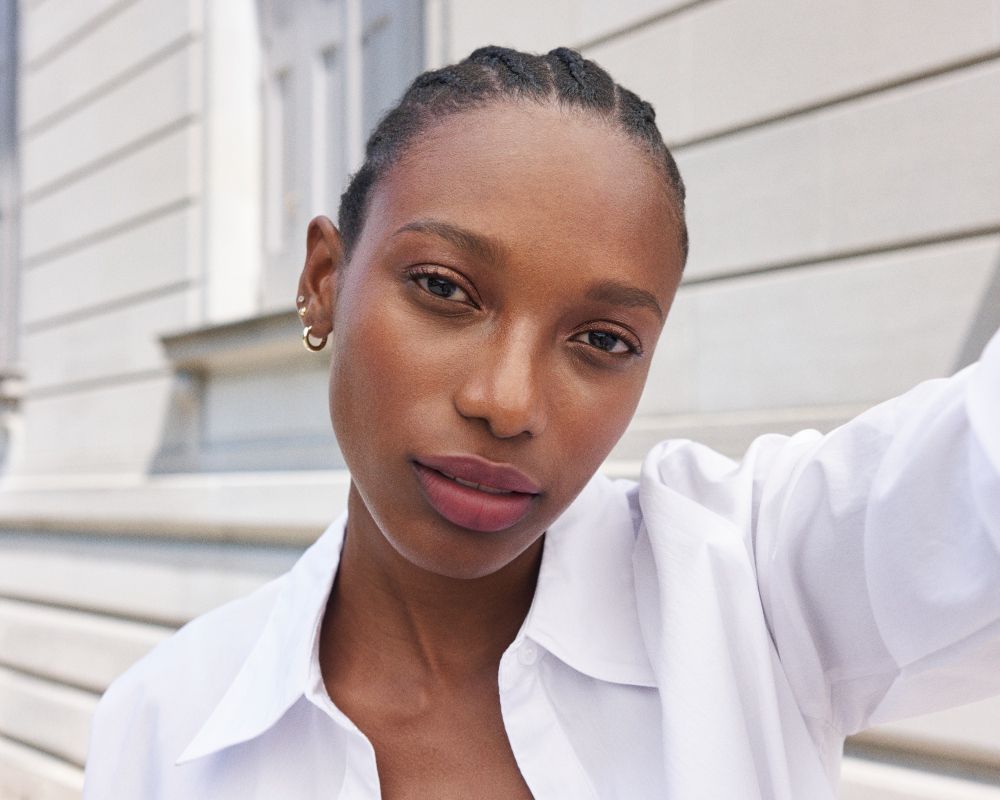Is Alcohol Bad for Your Skin? We Asked the Experts
Some days happy hour can’t come soon enough. Unwinding with your favorite cocktail can signal the end of a long day’s work, and release some much needed (if temporary) serotonin. But, consistent sipping can silently wreak havoc, specifically when you consider what it can do to your skin.
From zapping skin of its moisture to slowing down the processes of cellular repair, alcohol can damage your complexion; studies have shown that even moderate alcohol consumption affects skin. Serena Poon, a chef and nutritionist says a couple drinks per week “can cause under eye puffiness and reduced facial volume.” Heavy alcohol use, which she says “is considered eight or more drinks per week for women,” is associated with “amplified signs of aging.”
Habitual drinking can “accentuate fine lines, broken blood vessels, sun spots, and puffy eyes,” says Brendan Camp, MD, a double-board certified dermatologist. Of course, the best way to prevent your skin from fielding the negative effects of alcohol is to not drink altogether. But if you do choose to drink occasionally, you can mitigate the damage with certain lifestyle choices—how much you imbibe, how and what you drink, and how you care for your skin during and after drinking. Ahead, a team of pros offer advice on how to enjoy a cocktail or two without sacrificing the integrity of your complexion.
Is Alcohol Bad for Your Skin?
Alcohol is a diuretic, which means it increases your body’s urine production. “This causes the body to flush out excess water and salt at an increased rate,” explains registered dietician, Tony Castillo. In other words, it’s quite dehydrating, which does a number on your skin.
Lisa Richards, a registered dietician and candida expert says internal hydration is key when consuming alcohol. “Consider drinking a glass of water between each alcoholic beverage. It will likely increase your trips to the bathroom,” she says, “but will leave your skin well hydrated and may even mitigate headaches.” Poon suggests drinking alkaline water, as it can “balance the acidity levels in the body.” She also likes sipping on “sparkling water with citrus to help give your brain the impression of having a drink in hand,” in-between alcoholic beverages.
You also want to make sure your skin gets adequate hydration if you habitually drink alcohol, as booze will lead to “chronic dry skin,” according to Castillo. Drinks high in salt might be especially harsh on the complexion because they’re so dehydrating. Celebrity aesthetician and dermatological nurse, Natalie Aguilar says, “Salty drinks can leave our skin extremely puffy and dull, and can exacerbate redness in those with sensitive skin. To combat dehydration, try to incorporate a hydrating, water-binding serum like PCA’s Hyaluronic Acid Boosting Serum.”
Incorporate a moisturizer that contains a rich medley of ingredients to regulate water loss. “Moisturize each night and the morning after a night of drinking,” says Richards. Camp advises you to find a moisturizer with “B vitamin, nicotinamide to calm skin; hyaluronic acid, a humectant that attracts water molecules; and ceramides, or lipids naturally found in the epidermis that maintain the barrier function of the skin.”
You might also want to spritz your face with a misting spray while you’re drinking to keep the top layer of your skin moist. If you’re drinking poolside, this can help keep you cool and refreshed.
How Alcohol Ages Skin
As mentioned previously, chronic drying of the skin over time from drinking alcohol can make your skin appear aged. “When the skin (of the face especially) is dry, it can begin to crack and lead to wrinkles,” says Richards.
Camp adds that dehydration from alcohol can have the effect of “skin tenting,” which can make your complexion appear more aged and less supple.
When the skin is pinched and released, it normally recoils back to its normal, flat state immediately. When it is dehydrated it remains elevated—like a tent—for a bit before flattening out. This is called skin tenting, a phenomenon that occurs in dehydrated skin, according to Camp.
Be extra vigilant with sunscreen, as alcohol may leave skin vulnerable to damage from UV rays. This is especially important for day-drinking. “While a hat and sunglasses can only provide so much protection,” says Camp, “a moisturizer with SPF is important to protect from often overlooked sources of UV exposure, such as sunlight reflected from water and sand.”
Alcohol Can Inflame Your Complexion
One of the most harmful effects of alcohol comes from its tendency to trigger inflammation, the body’s natural response to foreign substances: “Alcohol is also quite inflammatory which shows itself in the face and eyes causing a puffy and bloated appearance,” explains Richards. “If you choose to drink, opt for clear alcohol. A general rule of thumb is the clearer, the better. You can also opt for a vodka without wheat as wheat can cause inflammation of the face.”
Pairing alcohol with a sugary mixer is like a double-whammy for your skin, as excess sugar consumption is linked with high levels of inflammation, according to a 2018 study. Drinks high in sugar can cause a process called glycation to occur, which Aguilar says, “is when sugar molecules adhere to our collagen and elastin bundles, breaking them down. In time, we lose the ability to keep our skin firm.”
Opt for Low-Sugar Beverages
But that doesn’t mean swearing off cocktails; just rethink your mixed drink recipes. “The best way to avoid sugar consumption while drinking alcohol is to substitute sugar-sweetened mixers for flavored sparkling water,” says Castillo. “A lot of cocktails contain simple syrup. If you’re at home, there are non-sugar simple syrups you can use as a substitute.”
Richards suggests you choose a low-sugar beverage, which excludes some wines you might have thought to be healthier options. “Most hard liquor like whiskey, gin, rum, vodka, and tequila contain little to no sugar. You can mix these with a low calorie, sugar-free beverage.” Poon’s drink of choice is tequila, “because it is easier to digest, as it is distilled from a plant and passes through the system faster,” she says.
Sommeliers Arden Montgomery and Margaux Reaume of Argaux says there are a lot of low-sugar organic wines that are complexion friendly. “Look for rosé, young red wine, and extra-dry champagne,” says Montgomery. Reaume recommends NV Champagne Delavenne Brut Nature Champagne, because of its “zero-dosage added sugar.”
Finally, when drinking, be sure to use a moisturizer so your skin will appear more even toned. “Green-tinted moisturizers can help offset redness due to flushing,” Camp suggests. Or, better yet, try products rich in green tea, to bring down inflammation on a cellular level.
Post-Drinking Skin Routine
After a night of drinking, Aguilar recommends using products that “help the skin rejuvenate, such as face scrubs followed with appropriate face and eye masks.” Sleeping masks are another good option to soothe irritation overnight. If you can make it into see a pro, she suggests a “hydrating facial with lymphatic massage to drain toxins and de-puff [your] face.” Achieve similar effects at home with a gua sha self massage.
Aguilar also loves a rejuvenating eye treatment and topical oxygen therapy to speed up recovery. But don’t pursue any major cosmetic treatments after a big night out. “It would be best to avoid any cosmetic procedures such as lasers, injectables and peels for a few days,” says Aguilar. Dehydration might make skin more susceptible to laser burns and, the puffiness doesn’t allow your injector to work on your face’s normal state. Not to mention, our risk of bruising and bleeding increases.
Finally, moderate drinking is easiest on skin as it allows for recovery time. “Drinking every other day is a great way to balance enjoying a drink without chronically subjecting your skin to alcohol’s damaging effects,” says Richards.
Also, worth considering: the potential of detoxing agents after drinking. “I recommend that people take high quality liver detoxifying supplements on the nights that they consume alcohol before they go to bed,” says Poon. “My go-to supplements for liver support are organic coconut charcoal, milk thistle, and dandelion.”
If you or someone you know is struggling with alcohol dependency, please see a physician or contact SAMHSA, a free helpline for substance abuse.








